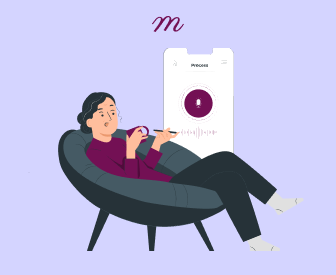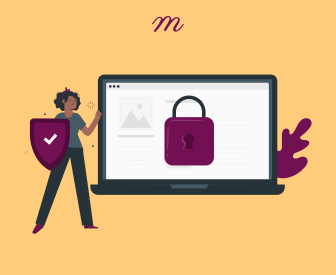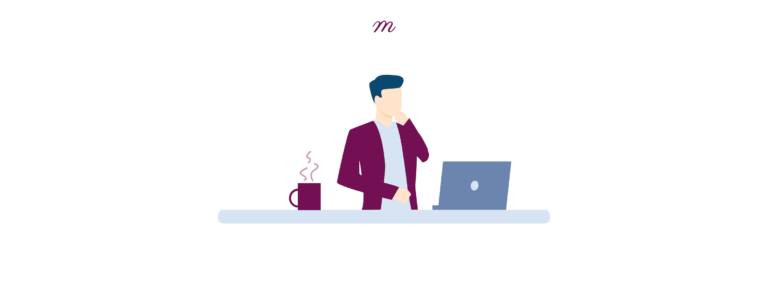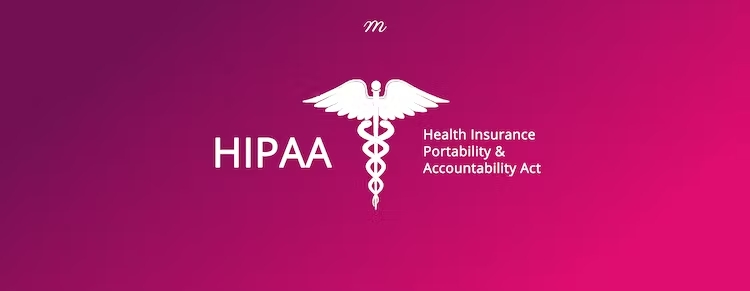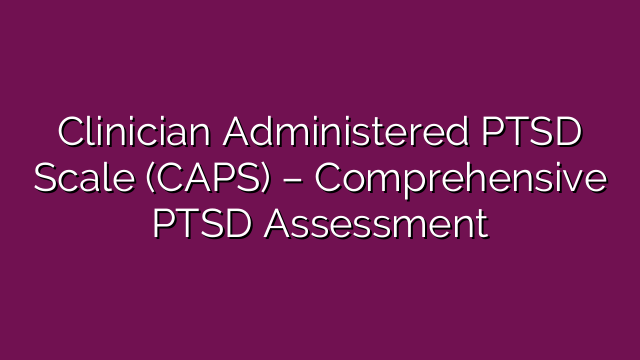Have your progress notes written for you automatically
Any mental health practitioner would want to provide the best possible care to their clients however handling the administrative and organisational parts of the practice may be exhausting and time-consuming. Well, if you face a similar concern you are in the right place because we have got you covered. There are a plethora of apps available to assist the therapists optimise their process to increase productivity and ultimately improve client service.
A therapist’s work goes beyond providing one on one sessions, there is a lot that goes behind the scenes – documentation, designing logos, upskilling, continuing education, scheduling appointments, monitoring payments, managing payroll, etc..
A person can easily get overwhelmed by the number of apps that are available on their smartphones. Especially as an online practitioner whose work is entirely on screen, the aim should be to reduce as much administrative work there is online to also have some some off screen time As therapists, we can make use of the already existing, commonly used apps to our advantage. For example, youtube can be used to learn more about a specific psychotherapy, spotify can be used to listen to a podcast, instagram can be used to create content around mental health. Moreover, there are specific apps out there that cater to the hassles of administration and operations management about which we will discuss in this article.
Apps can be either used as a facilitator in the therapists’ private practice, to ease their load you know or the therapist can themselves be a consumer of certain kind of apps or use them as a tool that they can provide to their clients.
Here are 13 indespensable apps that any therapist should consider incorporating into their practice:
SimplePractice
It literally makes your practice simple, you know. A robust sessions management system is essential to every successful therapy practice and this app aims to do that. SimplePractice differentiates out as an all-in-one solution tailored particularly to mental health professionals.
This extensive platform includes features such as:
Client scheduling and appointment reminders.
Secure video conferencing for telehealth sessions.
Services include EHR, note-taking, insurance billing, and claim tracking.
Client site facilitates communication and document sharing.
SimplePractice may dramatically reduce administrative expenses by centralising these critical processes, allowing you to provide more time to your clients and less to paperwork.
Google Calendar
While SimplePractice has scheduling options, many therapists find it useful to connect appointments with Google Calendar. This multifunctional application provides:
Integration with other Google services.
Easy communication and interaction with colleagues.
Customisable notifications and reminders.
Accessibility on many devices
Employing Google Calendar can ensure that you never miss an appointment and are constantly on top of your schedule. A widget of Google Calender can be added on your screen to always be reminded of what’s next! It is an easy to use and simple app. GO, DOWNLOAD AND TRY FOR YOURSELF.
Calendly
Calendly is an amazing option for therapists looking to improve the efficiency of their appointment booking process. This software allows clients to plan appointments based on their availability, which reduces back-and-forth communication. The key features include:
Integration into your existing calendar
Customisable scheduling rules and buffer times.
Automatic time zone detection.
Client intake forms
While google calender helps a counsellor take care of their own schedule – sessions, supervision, meetings, consultation, etc. Calendly on the other hand takes care of all the session appointments. Calendly can help you save time while also providing your clients with a flawless booking experience.
Evernote
Effective note-taking is essential for therapists, and Evernote provides a versatile and secure platform for organising ideas, research, and client notes. Evernote allows the therapists to:
Create and organise notes in several formats (text, audio, and photos).
Set up notebooks for various clients or themes.
Tags make it easier to search and categorise content.
Access your notes on all devices.
While HIPAA compliance is critical, Evernote may be an effective tool for personal note-taking and professional development.
Google Drive
With Google Drive, you may compile information into a digital library that you can quickly access when needed. For any therapy practice, safe document sharing and preservation are crucial. A cloud-based option offered by Google Drive enables one to:
Arrange and preserve significant papers, including consent forms and instructional materials.
To save any reading material or resources you might want to safe keep for future use
Work together on shared papers with coworkers.
Utilise any device to access your data.
To restrict who can read or change particular files, set permissions.
You can build a digital library of resources that are readily available when you need them by using Google Drive. Google really built an umbrella of apps to make it easier for work from home employees/personnel.
Zoho Invoice
It's critical to manage one’s practice's finances, and Zoho Invoice provides an easy-to-use platform for drafting and monitoring bills. With this app, one can:
Create invoices that look professional.
Keep track of payments and remind people.
Take online payments.
Make financial reports.
Simplifying your billing procedure will help you keep an accurate record of your practice's finances and guarantee on-time payments.
Quenza
Quenza is an innovative app that allows therapists to create and assign personalised activities and exercises to their clients in between sessions. With Quenza, a mental health professional can:
Create personalised homework assignments.
Track client progress and send psychoeducational materials.
Develop treatment strategies and interventions.
By incorporating Quenza into your practice, you may broaden your therapeutic influence beyond the session room and foster ongoing client improvement.
Headspace
As a mental health practitioner, one must prioritise their own well-being. Headspace is a famous meditation and mindfulness software that can help a practitioner manage stress and improve their overall mental health. Features include:
Guided meditations for stress, sleep, and focus
Short "mini-meditations" for hectic days.
Sleep sounds and bedtime workouts.
Mindfulness exercises for daily activity.
Incorporating Headspace into the daily routine allows therapists to grow their own mindfulness practice while also modelling self-care for their clients.
With so much online data consumption and the need to save resources online, personally, I would hire someone to clean my phone and organise pictures, books, readings, videos, etc. Staying updated with the newest research and breakthroughs in mental health is critical for any clinician. Pocket is a useful programme that lets you save articles, movies, and web sites for later perusal. Pocket allows users to:
Save content on any device.
Organise saved objects using tags.
Access saved material offline.
Find fresh content based on your interests.
Pocket allows you to simply construct your own personal collection of professional development resources for later perusal.
YouTube
While not traditionally seen as a professional app, YouTube can be a great resource for therapists. Curating a playlist of short films and educational movies allows a therapist to:
Provide visual tools to communicate concepts to clients.
Offer more resources for homework assignments.
Improve your grasp of complicated concepts.
Stay updated on new therapeutic procedures and approaches.
Remember to thoroughly review all content before sharing it with clients to ensure it is consistent with your therapeutic aims and professional standards.
Spotify
Music can be a powerful aid in therapy, and Spotify has a large library of songs and playlists that may be used in a variety of therapeutic settings. Spotify allows you to:
Create personalised playlists for relaxation or mood regulation.
Use music as a ice breaker in sessions
Recommend playlists to clients for personal usage.
Incorporate music into your mindfulness activities.
While a therapist should be aware of copyright and licencing concerns, Spotify can provide a vital audio component to the professional’s therapy toolset.
As a therapist do you have a social media account? There are a growing number of therapists making accounts on instagram to grow awareness and to market their practice as well. Social media networks such as Instagram can be effective tools for establishing one’s professional brand and communicating with new clients. Maintaining a professional Instagram account allows a therapist to:
Share mental health advice and ideas.
Promote services and activities!
Connect with specialists in the field and share practice philosophy.
Remember to keep the professional and personal accounts separate, and follow all ethical rules for using social media in therapy.
Linktree
Linktree offers a simple method for sharing many links via a single, customisable bio link, tying together the therapist’s whole online presence. This is especially beneficial for their Instagram profile, because then they can only have one clickable link. Linktree will allow a therapist to:
Send followers to the therapist’s website, blog, or booking page.
Provide links to recent articles or resources.
Promote future events and seminars.
Allow quick access to their many social media profiles.
Using Linktree, a therapist can increase the effect of your online presence and make it easier for potential clients to interact with your information and services.
These 12 applications provide a comprehensive arsenal for modern therapists, covering issues ranging from practice administration and client involvement to personal growth and professional branding. By deliberately adopting these technologies into the practice, the therapist can increase efficiency, broaden their therapeutic reach, and, ultimately, deliver better treatment to their clients.
Remember that a therapist's primary ethical role is to uphold client confidentiality and professional limits. When adopting these applications into their practice, therapists must properly review each one for HIPAA compliance. One should guarantee that any app that stores or transmits client data employs end-to-end encryption and enables for the establishment of strict access controls.
Mental health professionals should stay up to date on the current guidelines from respective professional organisations addressing the use of technology in psychological practice. Participating in ongoing education on digital ethics and cybersecurity helps therapists stay current. It's crucial to note that, while these apps might help therapists improve their practice, they should never replace professional jeopardise ethical standards.


